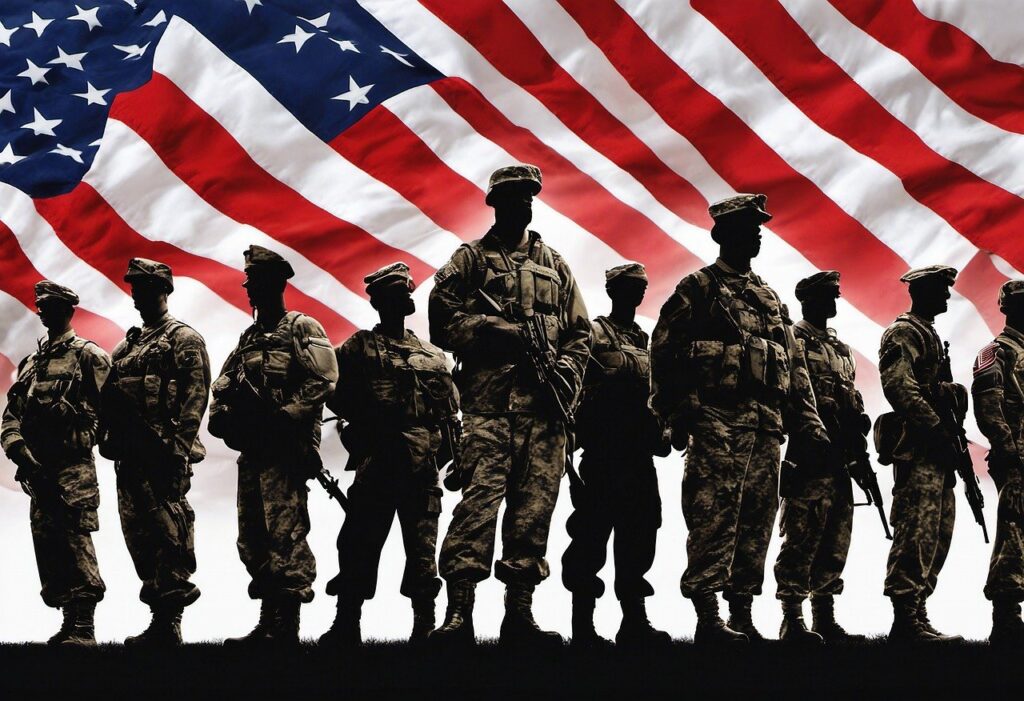For many veterans, medical foster homes are a heroic alternative to traditional nursing homes.
“Foster” can connote the encouragement or development of something. Or it can be used to refer to raising children who aren’t your own. When used in context with the U.S. Department of Veterans Affairs Medical Foster Home Program (MFH), the term embraces both concepts. In other words, VA medical foster homes are places where individuals and families encourage and care for aging veterans.
In doing so, new families begin.
MFHs are private homes where resident caregivers tend to up to three veterans who need assistance with activities of daily living — twenty-four hours a day, 365 days a year24/7/365. Activities of daily living, or ADLs, include such things as eating, getting dressed, bathing, toileting, and getting around.
There are about 700 veterans in MFHs nationwide. It’s a new program to Columbia, and Harry S. Truman Memorial Veterans’ Hospital’s Melonie Blair-Fabian is looking for a few good men and women to take part.
“This is an innovative way to care for aging veterans in our community,” said Blair-Fabian, MFH program coordinator. “MFH works through the VA to establish partnerships with community members to offer an alternative to a traditional long-term care setting.”
Blair-Fabian said more than half of the veteran population is over the age of 65, including more than 104,000 in Missouri. MFH is one component of the VA’s Aging in Place initiative that brought home-based primary care services to them. It’s a sound concept for a lot of reasons.
It’s a Better Way to Care for Veterans
Private homes offer broad diversity, such as children, pets, political affiliations, religious practices, interests, and hobbies that might fit a veteran’s preferences. In that way, their emotional and social needs receive the same priority as their physical care requirements. And when veterans feel more at home, they’re happier, healthier, and feel they have a place within a family. They may sleep more restfully, eat better, and enjoy life more.
Most veterans like to be around others who have served their country. There’s a sense of camaraderie. They can share war stories and inside jokes. They can understand some of the physical, mental, and emotional issues with other veterans.
Because MFHs are limited to one to three veterans, residents tend to receive more attention from caregivers and their families. The home must be the caregiver’s primary residence which means their veteran residents become a part of their daily routines and lives.
They become family.
MFHs Are More Affordable
The average monthly cost of a semiprivate room in Missouri nursing homes is $5,000 to $6,000. Of course, many facilities come with even higher price tags. Blair-Fabian said that most veterans, like most aging adults, are unprepared for the cost of long-term care. Their primary income is Social Security which isn’t nearly enough to pay for a traditional nursing home.
Nationally, the average cost for veterans in an MFH is $2,800 per month. Veterans are responsible for paying caregivers directly using what income they have. Fortunately, many qualify for certain VA benefits to help cover the cost. Blair-Fabian explained that it’s like putting together a puzzle, and it can be a complicated one. But they don’t have to do it on their own.
The home-based care offered as part of the VA’s Aging in Place initiative uses a team of providers, including physicians, medical providers, nurse case managers, psychologists, occupational therapists, dieticians, and pharmacists. The team also includes social workers. Those are the professionals who know what benefits are available, the eligibility requirements for each, and how to access them. That means a social worker, like Blair-Fabian, is the puzzle master who will put it all together for a veteran interested in living in an MFH. That’s a complex burden lifted from veterans and their families.
Matchmaker, Matchmaker
Families interested in fostering undergo background checks, home, and safety inspections before they can become caregivers. In fact, the VA uses the same rigorous standards as required of any long-term care facility in Missouri. The VA provides training and ongoing support to both the caregivers and veteran residents. Veterans continue to receive the VA’s home-based primary care to manage their health needs.
One plus is that family members of veterans, many of whom may already be caring for them, can apply to become fosters if they take in another one or two veterans. Moreover, all MFH caregivers qualify for the VA’s Respite Care Support Program, providing backup to give them time off from their duties when they need a break.
Caregivers come from all backgrounds and walks of life and no prior experience is required.
“The most important pieces are a caring heart and a desire to care for veterans who gave so much for their country,” Blair-Fabian said.
However, the magic of the medical foster home, for veterans and their caregivers, is the match.
“In the matchmaking process, we extensively evaluate each veteran’s lifestyle, what’s important to them, what kind of care needs they have, then match them with the caregivers that have that skillset and comfort with caring for those veterans,” Blair-Fabian said. “It depends on the caregivers’ strengths. Some of them excel in caring for folks who have dementia. Their communication skills are superb and they’re able to meet the needs of veterans in that way. While other caregivers can provide that hands-on, personal, hygiene care, and that’s where they excel.”
Although there aren’t yet any MFHs in Columbia, Blair-Fabian coordinated the program for the Northern Arizona VA for six years, working with forty-four veterans. She has seen how the right match changes lives for the better for the veterans and their foster families.
“Some of the best experiences of my professional life have been where I would do a thorough chart review, talk to the primary care team that was referring the veteran, meet the veteran, and talk about foster homes,” she said. “Then, if the veteran wanted to proceed, we would visit some foster homes and talk to caregivers. That’s where conversations happened that would never show up in a chart. That’s why the process works.”
Blair-Fabian continued, “It’s a process of getting know the folks involved. Both parties have to be willing to take that leap because it’s such a personalized environment. Ultimately, those caregivers and those veterans do become a family unit. So, there’s going to be conflict and hurt feelings and all those things that come along with a family. We’re there to help them through those transitions. It has made my heart so happy over the years.”
Serving Those Who Served
The advantages veterans have living in an MFH include having a private room, eating home-cooked meals, participating in social and recreational activities as they choose, and having their care needs met, all while paying far less than they would in a long-term care facility without those benefits. Above all, they aren’t residents. Veterans in medical foster homes are family. And to someone who has served, that can make all the difference in their quality of life.
For caregivers, the program offers a way to give something back to them for their service. The community now has that opportunity.
“We’re trying to find foster families in Columbia,” Blair-Fabian added. “We have plenty of veterans who would benefit from the program, but we need folks who have that calling to open up their hearts and their homes to aging veterans who are no longer able to live in the community on their own.”
Veterans who want to enroll with the VA should call 573-814-6000 extension 53071. Those enrolled and interested in the MFH program can call Blair-Fabian at 573-814-6000 extension 55450. And if you’re someone in Columbia looking for a chance to make a difference while building a different type of family, call Blair-Fabian or email her at melonie.blair-fabian@va.gov.










